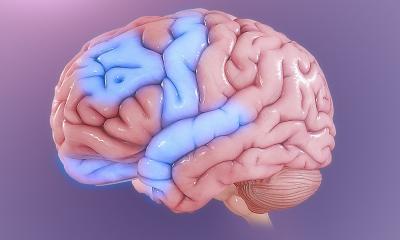Fear of relationships - it's in the genes
There can be many reasons why a person might have relationship problems, but now Swedish scientists at Medical University Karolinska Institutet found a specific gene variant that is associated with how men bond to their partners. The insights can lead to a better understanding of such problems as autism and social phobia.

Hasse Walum, postgraduate student at the Department of Medical Epidemiology and Biostatistics, and his colleagues made use of data from "The Twin and Offspring Study in Sweden", which includes over 550 twins and their partners or spouses. The gene under study codes for one of the receptors for vasopressin, a hormone found in the brains of most mammals. The team found that men who carry one or two copies of a variant of this gene - allele 334 - often behave differently in relationships than men who lack this gene variant.
The incidence of allele 334 was statistically linked to how strong a bond a man felt he had with his partner. Men who had two copies of allele 334 were also twice as likely to have had a marital or relational crisis in the past year than those who lacked the gene variant. There was also a correlation between the men's gene variant and what their respective partners thought about their relationship.
"Women married to men who carry one or two copies of allele 334 were, on average, less satisfied with their relationship than women married to men who didn't carry this allele," says Hasse Walum.
He stresses, however, that the effect of this genetic variation is relatively modest, and it cannot be used to predict with any real accuracy how someone will behave in a future relationship.
The same gene has been previously studied in voles, where it has been linked to monogamous behaviour in males.
"The fact that the corresponding gene has proved important for similar behaviour in voles makes our findings even more interesting, and suggests that the thoroughly studied brain mechanisms that we know give rise to strong bonds between individual voles can also be relevant to humans," Hasse Walum continues.
The team hopes that greater knowledge of the effect of vasopressin on human relations will one day give science a better understanding of the causes of diseases characterised by problems with social interaction, such as autism.
Publication: "Genetic variation in the vasopressin receptor 1a gene (AVPR1A) associates with pair-bonding behavior in humans."
Hasse Walum, Lars Westberg, Susanne Henningsson, Jenae M. Neiderhiser, David ReissWilmar Igl, Jody M. Ganiban, Erica L. Spotts, Nancy L. Pedersen, Elias Eriksson and Paul Lichtenstein
PNAS Early Edition, 2-5 September 2008.
Karolinska Institutet is one of the leading medical universities in Europe. Through research, education and information, Karolinska Institutet contributes to improving human health. Each year, the Nobel Assembly at Karolinska Institutet awards the Nobel Prize in Physiology or Medicine.
Photo: Sebastian Dahlgren
12.09.2008










